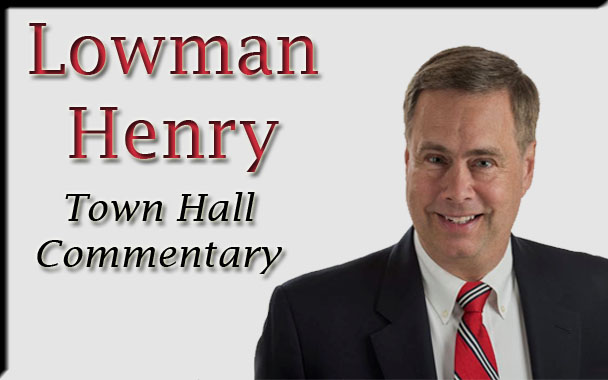Lieutenant Governor Race Garners Little Attention

Under the right circumstances, which have occurred twice in recent state history, the Lieutenant Governor of Pennsylvania can be the most important office in the commonwealth. This year, however, the campaign for that office has become little more than a footnote as highly competitive races for the U.S. Senate and governor have dominated the spotlight.
There are many oddities surrounding the office beginning with the process of electing the lieutenant governor. Candidates for lieutenant governor run in a stand-alone vote during the Primary, then are paired with their party’s candidate for governor as a ticket in the General Election.
The Pennsylvania Constitution ascribes few duties to the lieutenant governor who basically serves as President of the State Senate and presides over that body in a largely ceremonial role.
It is at the discretion of the governor to assign other duties to the lieutenant governor. Some have chosen to give significant portfolios to their second in command as did Tom Ridge when he put Mark Schweiker in charge of emergency services, and Tom Corbett who delegated a variety of significant duties to Jim Cawley.
Other governors, including current Governor Tom Wolf have had a rocky relationship with their lieutenant governor. Wolf and his first lieutenant governor Mike Stack were frequently at odds causing Wolf to distance himself from Stack who lost his bid for re-election to current Lieutenant Governor John Fetterman.
Otherwise, the lieutenant governor basically sits around waiting for something to happen to the Big Guy. That has occurred twice since the current state constitution went into effect. Lt. Governor Mark Singel became acting governor when Robert P. Casey, Sr. underwent multiple organ transplants and a lengthy recovery. Mark Schweiker became governor following the resignation of Tom Ridge who was tapped as homeland security advisor by President George W. Bush in the wake of the September 11, 2001 terrorist attacks.
The two major parties have had vastly different political experiences with their nominees for lieutenant governor.
Pittsburgh Mayor Peter Flaherty was nominated for governor in 1978 defeating in the Primary among others the “real” Bob Casey. Running for lieutenant governor was an Allegheny County biology teacher also named Robert P. Casey. He won the Primary, then proved to be a drag on what was ultimately a losing ticket. And then there was the awkward paring of Philadelphia Mayor Ed Rendell with State Treasurer Catherine Baker Knoll.
Republicans have largely avoided a disconnect at the top of the ticket through an endorsement process that yielded compatible candidates. This year, however, for the first time in memory the GOP did not endorse in statewide races as the large field of candidates for all three statewide offices made consensus elusive.
As a result, the Republican race for the lieutenant governor nomination has become a free-for-all, but until recently run largely under the radar screen. Teddy Daniels, a retired police officer from Wayne County became embroiled in a messy domestic situation that spilled over into the legal system. He was quickly exonerated, but the case made headlines.
Daniels was also in the news following a dust-up with fellow candidate Russ Diamond, a state representative who has taken aim at Daniels in social media videos.
The other candidates have been seeking to distinguish themselves from the pack. Jeff Coleman, a former state representative who now runs a public relations firm is campaigning on a platform of returning civility to the political process. Civility, however, has been largely absent as negative ads have dominated the airwaves this primary season.
Republican voters have a field of candidates with a wide range of backgrounds from which to choose. John Brown is a former Northampton County Executive who previously was nominated for state auditor general. State Representative Carrie DelRosso entered the race after her district was rendered uncompetitive in redistricting. Chris Frye is the Mayor of New Castle. Former State Representative Rick Saccone is joined on the ballot by businessman James Jones of Montgomery County, and Clarice Schillinger who ran a political action committee backing conservative school board candidates.
Democrats have a much smaller field of candidates. State Representative Austin Davis of Allegheny County is endorsed by the party’s lone candidate for governor, Attorney General Josh Shapiro, but faces a challenge from State Representative Brian Simms of Philadelphia and Montgomery County banker Ray Sosa.
In a state as large as Pennsylvania those names are largely unfamiliar to most voters. But as Election Day approaches voters should learn as much as possible about each of them because, well, you never know . . .
(Lowman S. Henry is Chairman & CEO of the Lincoln Institute and host of the weekly American Radio Journal and Lincoln Radio Journal. His e-mail address is [email protected].)
Permission to reprint is granted provided author and affiliation are cited.





